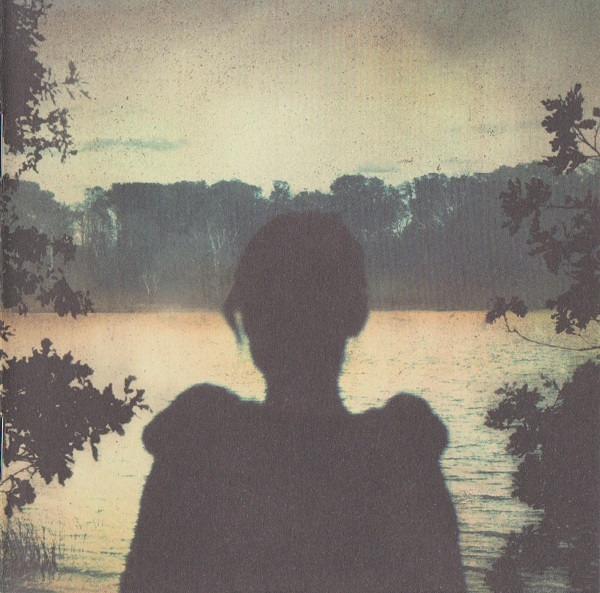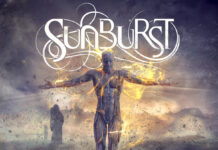Considering that I had become a huge fan of PINK FLOYD in the early 1990s, checking out every band that even remotely sounded like a derivative of their mid-1970s album classics, it must have been due to some weird glitch in the Matrix that I didn’t find out about the British post-prog juggernaut, PORCUPINE TREE, until their eighth studio album “Deadwing,” released on March 28th, 2005, via Lava Records (in Europe). Those earlier PT albums do resonate with a rather thick Floydian aura, and I’m pretty sure my prog-minded friends must have tried to persuade me to check them out more than once, but for some peculiar reason, I never did. This 2005 endeavor was the first PORCUPINE TREE album that hit the Billboard charts and reached a larger audience for the band – and finally made me lend my ear to their music. The album was based on a screenplay, a surreal ghost story written by the band’s primus motor, Steven Wilson, and Mike Bennion; it was said to have been inspired by David Lynch and Stanley Kubrick, but it never made it to production, so we can only guess what we have missed. The music, however, is slightly metal-tinged post-prog alchemy at its finest, and it is easy to see why this beautifully balanced selection of songs became the band’s best-selling album at the time, to be surpassed only by its even more haunting successor, “Fear of a Blank Planet,” in 2007. In the early 2000s, Wilson had collaborated with the Swedish prog-metal rogues, OPETH, producing a few of their landmark albums, and something had obviously rubbed off from these joint ventures; this album is characterized by some of the most badass riffs and sinister vibes in the band’s catalog, with the metal flourishes nicely balanced by some of the most delicate and beautiful, atmospheric passages – that lovely PINK FLOYD stuff.

Right off the bat, the album throws in a 10-minute epic, driven by a somewhat TANGERINE DREAM-like synth ostinato. The guitar riffs, in turn, take off on an almost Opethian tangent, although nowhere nearly as aggressive as, say, those on OPETH‘s “Ghost Reveries” that also came out in 2005. Even when flirting with metal elements, PORCUPINE TREE was essentially a progressive rock band, thanks to the prominent role of the atmospheric, post-prog textures and the overall polished production. Then again, there is substantial overlap between PORCUPINE TREE at their heaviest and “tr00” prog metal at its softest. I have noticed, over the years, that not all prog aficionados welcome these metal influences on this PT album. For me, having grown up on a steady diet of metal, even the heaviest riffs on this album don’t exactly represent the kind of music to which I would feel like smashing sets of dinnerware against my forehead.
Speaking of which, some of the heaviest riffs are served in the next song, “Shallow.” It is the “big rock moment” on the album, rolling out riffs that resonate with an almost grunge-like aura, something that SOUNDGARDEN might have dropped circa 1995. Wilson later admitted that this song was written after pressure from the record label to create a radio-friendly banger for the radio. Well, I have never heard this song on the radio but, then again, I have never heard PORCUPINE TREE on the Finnish radio waves, to begin with.
What sets this album apart from the band’s previous endeavors is not only the subtle shift toward progressive metal but also the prominent role of Richard Barbieri‘s keyboards. On those earlier albums, the keyboards mostly provided some atmospheric background, layered effects, and such. On “Deadwing,” Barbieri is given a good spotlight. One of the most haunting demonstrations of his keyboard prowess is the piano-driven ballad, “Lazarus,” which brings the beautiful side of PORCUPINE TREE to the forefront – the song is a real peach!
Over the years, I’ve noticed that Wilson has gained a reputation for being a rather humorless person, especially among the online genre police who take pride in nit-picking just for the sake of it. British humor must be a completely unknown phenomenon for them. I wonder what they make of the song, “Halo,” which I reckon cannot be but a tongue-in-cheek take on the born-again Christians. The song has a pretty infectious groove, courtesy of bassist Colin Edwin and drummer Gavin Harrison whose signature chops make even the most complex prog meters sound like a walk in the park. The song features a sci-fi guitar solo by Adrian Belew of KING CRIMSON, too. (He drops a cameo appearance also on the opening track…) The song alternates nicely between high-octane riffs and somewhat NINE INCH NAILS-like, moodier sections.
So, the first half of the album is rather riff-driven, even with the piano ballad squeezed in between, but from there, things begin to resonate rather differently. First, “Arriving Somewhere But Not Here” unfolds into a 12-minute epic of atmospheric post-prog, throwing in some abrasive OPETH-riffs somewhere along the way. Mikael Åkerfeldt from this Swedish prog-metal monolith lends his clean vocals to several songs on this outing – the title track, “Lazarus,” and this lengthy beast, here, which also features his guitar solo. While, in theory, it might not strike you as such a brilliant idea to mix PINK FLOYD and OPETH in the same sonic bowl, Wilson with his post-prog comrades shows here that, in practice, it is one hell of a good idea.
Then, while the song in all of its acoustic, delicate beauty is not the first thing that comes to mind when you think about OPETH‘s greatest prog-metal moments, there is something in “Mellotron Scratch” that recalls the atmospheric extraordinaire, “Damnation,” (2003) in OPETH‘s album catalog. Then again, it was one of the albums that Wilson produced for these Swedes. As far as I understand, Wilson and Åkerfeldt share an infatuation with the vintage prog of the 1970s. The overlapping vocal harmonies in the song’s coda trigger faint flashbacks of some of those quirky bangers by GENTLE GIANT from that era, especially.
Next up, “Open Car” is the best high-octane riffer on the album, for me. Not only does the serpentine, off-kilter guitar riff work wonders per se but the way Harrison‘s signature drumming ties the groove together is also something that stands out – and, then, the chorus delivers the final blow. Rewinding 20 years, I think this song was THE one that really got me hooked on the album.
If I remember correctly, some random online loudmouth once stated that “The Start of Something Beautiful” is what PINK FLOYD would have sounded like, had it been a real prog-rock band. Yeah, I get it that overtly atmospheric stuff is just too much for the genre police with an inclination to all things progressive. Then again, as savage as this remark was, it wasn’t entirely untrue. This 8-minute epic does resonate with the air of PINK FLOYD quite remarkably and it is one of the most beautiful songs PORCUPINE TREE has ever written. It is also one of the songs in this selection in which Barbieri‘s keyboardism really shines.
Last, “Glass Arm Shattering” wraps things up by revisiting the early sound of PORCUPINE TREE – yeah, that dreamy and spacious sound, paying homage to that aforementioned prog monolith from yesteryear. The slide guitar (or lap steel) further drives the point home. The vocal harmonies in the song’s coda are, once again, something to give you goosebumps. So, despite some effete intellectual online music snobs sometimes dismiss this PORCUPINE TREE effort as the somewhat boring and uninspiring transition between “In Absentia” and “Fear of a Blank Planet,” I dare to claim it is every bit as brilliant piece of work as those. Okay, these two albums have no weak moments whatsoever – but neither does “Deadwing.” It rocks.
Written by Jani Lehtinen
Tracklist
- Deadwing
- Shallow
- Lazarus
- Halo
- Arriving Somewhere but Not Here
- Mellotron Scratch
- Open Car
- Start of Something Beautiful
- Glass Arm Shattering
Lineup
Steven Wilson – vocals, guitars, piano, keyboards, hammered dulcimer, bass
Richard Barbieri – keyboards, synthesizers
Colin Edwin – bass
Gavin Harrison – drums, percussion
Guest:
Mikael Åkerfeldt – backing vocals on tracks 1, 3, 5, and 10; guitar solo on track 5
Adrian Belew – guitar solo on 1, 4
Label
Lava Records / KScope (reissues after 2018)





